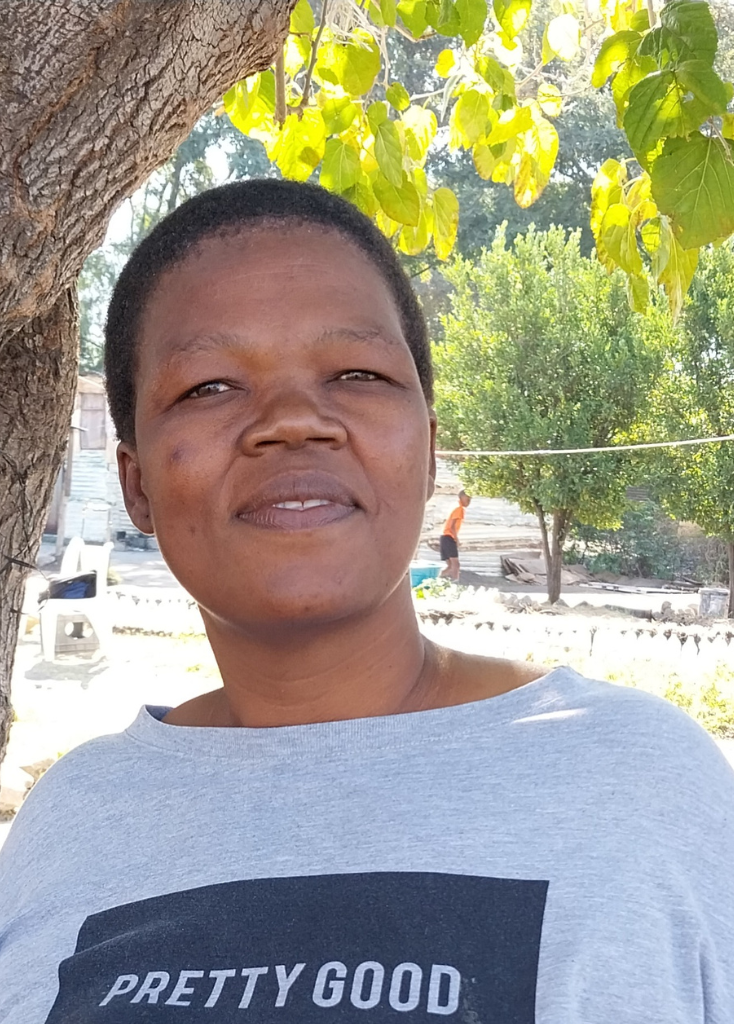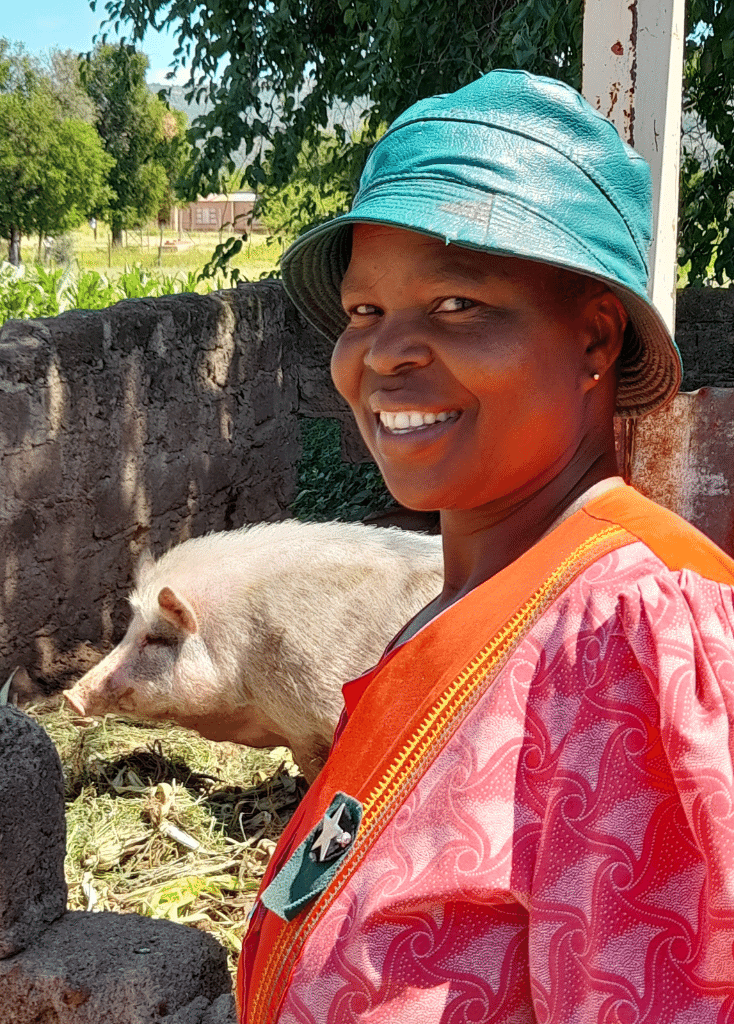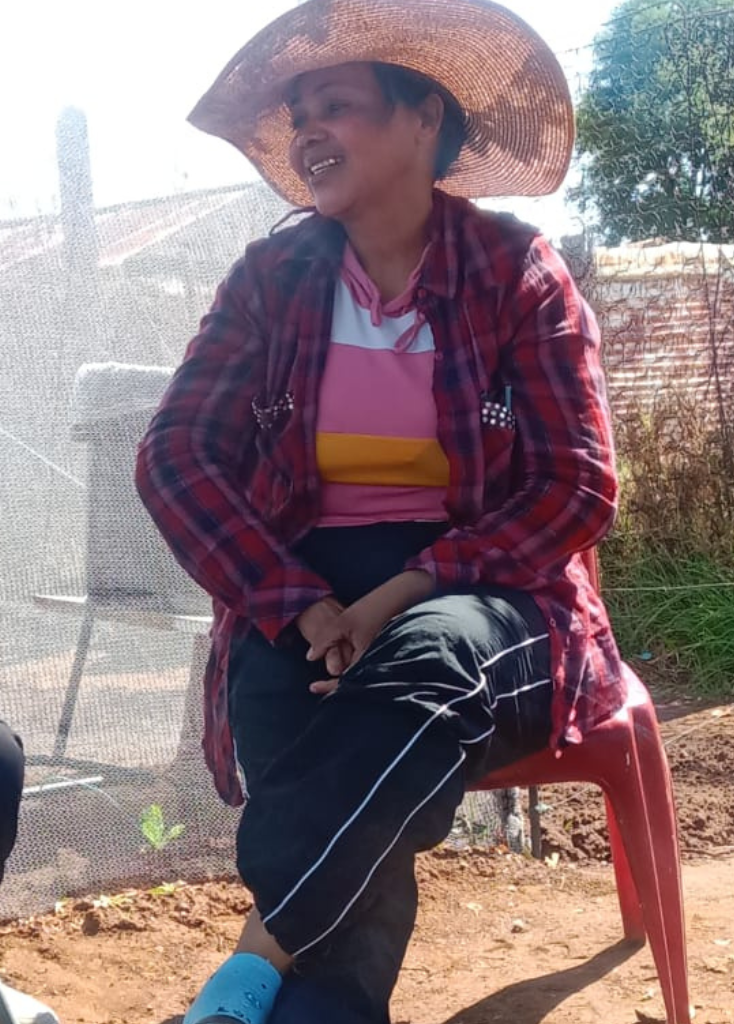
BBL PARTICIPANT: Selloane Nthejane, Mfidikwe, Rustenburg, Northwest Province
In a Nutshell
Through her participation in SocioTech’s Broad-Based Livelihoods (BBL) strategies to stimulate personal economic activity, Selloane Nthejane, who is from Lesotho but lives in Mfidikwe in Northwest, has improved the financial management of her businesses and her household. She imports goods from neighbouring countries to sell locally. For her there is pleasure and pain in working the soil.
She says…
I come from Lesotho, but I have been in South Africa since 2013. Lesotho is a poor country and there is no work there. It doesn’t matter how much you miss a place, if you can’t work, there is no way to stay. That makes me sad because there are all sorts of wonderful things about Lesotho.
For me the food is healthier. If I think back to what I ate as a child, I think it was probably healthier than the way our children eat today. We ate mostly traditional food – mabele, dinawa, milk straight from the cow, free range traditional chickens – not all these sweets and Simba chips the way children eat today. I remember that sometimes we even ate donkey! You have to stew it a long time and it has a smell that is unlike any other meat but cooked long and slow it can be flavoursome.
One of the reasons I garden, is because I want my children to grow up strong and healthy with good food habits. You can’t like what you don’t know, so we parents must introduce our children to healthy food. That concept of The Food Robot that Kwena showed us helps, because it is a new way to explain ancient ideas. It is saying all the things that our ancestors knew about healthy food, but in ways that we modern people and especially our 21st century children can understand.
I had gardened before, but meeting Kwena and learning the SocioTech technique has brought me new skills. It has only been a few months but his lessons on soil preparation have already made a big difference.
"You can't like what you don't know..."
Gardening is a source of pleasure and pain to me. I had two sons, but my older son passed away last year. He was only 18. He loved to garden, and he loved to eat salads, so when I am in the garden, I miss him so much. That is the pain part, but I also get to feel close to him when I am in the garden – it was a place we spent time together and as I work, I find myself talking to him. He was a lovely church boy. He loved to sing and dance in church.
There is no greater pain than the loss of a child. When he died, I didn’t know if I could go on. Some business projects that I had fell apart during that time. For instance, during Covid I sold perfumes - one for R175, I was making up to R8000 per month buying in Rustenburg and selling here in the location – but when my son died, I was so broken and sad I couldn’t go on. I needed a break.
But giving up is not an option, I have to keep going for my other son, so I am trying to find ways to pay tribute to his memory by reconstructing my life. For me the big game changer has been the SocioTech budgeting training. Learning about the importance of savings. Sell, not just to spend, but rather use what you bring in to grow your business. In my case, we don’t own this property so expanding farming is tricky, but I have a clothing business that I am focussing on. I buy second hand clothes in Namibia and new clothes from factories in Botswana, and then I go and sell them in Rustenburg. I also sell at the school. I have a friend who is a teacher, so I take samples of the children’s clothes to her, and she shows them to parents who place orders.
Who knows what the future will bring. Every day can be a step forward. There will be problems along the way because that is how life is, but thanks to the SocioTech training, it feels like there is some support to guide us through difficult times.










